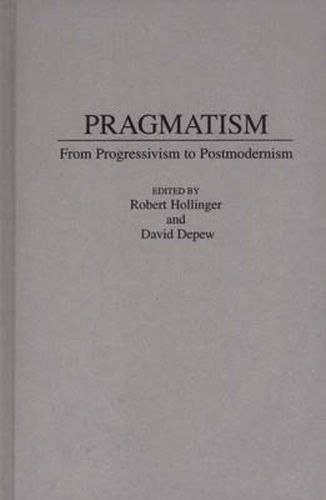Readings Newsletter
Become a Readings Member to make your shopping experience even easier.
Sign in or sign up for free!
You’re not far away from qualifying for FREE standard shipping within Australia
You’ve qualified for FREE standard shipping within Australia
The cart is loading…






American pragmatism can be best understood against the background of 20th-century American culture and politics. The essays in this volume, by philosophers, cultural critics, and historians, explore the development of pragmatism in this context. The emphasis in this volume is on the interrelations between the philosophical or foundational issues raised by pragmatism as a philosophical movement, and the cultural, political, and educational programs that have been associated with pragmatism from James, Dewey, and Mead to Rorty and Cornel West. The book is divided into three parts, reflecting the periods of Progressivism, Positivism, and Postmodernism. The contributors explore the ways in which pragmatist writings have been appropriated or misappropriated in the literature and practice of Progressive reformers, positivist academics, end-of-ideology liberals, and postmodernists.
$9.00 standard shipping within Australia
FREE standard shipping within Australia for orders over $100.00
Express & International shipping calculated at checkout
American pragmatism can be best understood against the background of 20th-century American culture and politics. The essays in this volume, by philosophers, cultural critics, and historians, explore the development of pragmatism in this context. The emphasis in this volume is on the interrelations between the philosophical or foundational issues raised by pragmatism as a philosophical movement, and the cultural, political, and educational programs that have been associated with pragmatism from James, Dewey, and Mead to Rorty and Cornel West. The book is divided into three parts, reflecting the periods of Progressivism, Positivism, and Postmodernism. The contributors explore the ways in which pragmatist writings have been appropriated or misappropriated in the literature and practice of Progressive reformers, positivist academics, end-of-ideology liberals, and postmodernists.